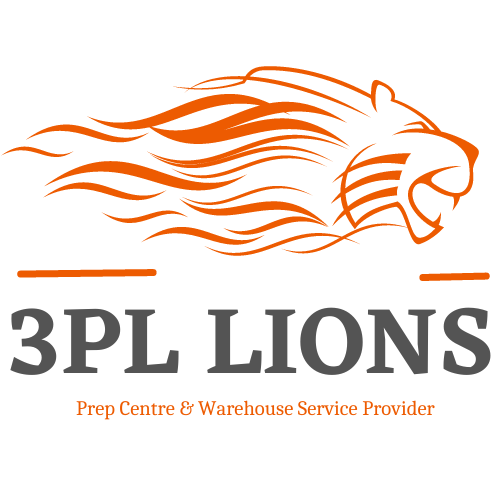Selecting the right Third-Party Logistics (3PL) partner is a critical decision that can significantly impact your business’s efficiency, customer satisfaction, and bottom line. A reliable 3PL partner can streamline your supply chain, improve delivery times, and reduce costs. This guide will walk you through the key factors to consider when choosing a 3PL provider, ensuring you make an informed decision that aligns with your business needs.
Understanding 3PL Services
Third-Party Logistics providers offer a range of services designed to manage various aspects of your supply chain. These services typically include:
- Warehousing and Distribution: Storing goods and managing inventory in strategically located warehouses.
- Transportation Management: Coordinating the movement of goods via different transportation modes (truck, rail, air, sea).
- Order Fulfillment: Picking, packing, and shipping orders to customers.
- Freight Forwarding: Arranging shipments for domestic and international transportation.
- Customs Brokerage: Handling customs clearance and compliance for international shipments.
- Value-Added Services: Additional services like kitting, assembly, and packaging.
Key Factors to Consider When Choosing a 3PL Partner
Experience and Expertise
- Look for a 3PL provider with a proven track record and extensive experience in your industry. They should understand the unique challenges and requirements specific to your sector.
- Evaluate their expertise in handling similar products, managing seasonal fluctuations, and complying with relevant regulations.
Range of Services
- Ensure the 3PL offers a comprehensive suite of services that align with your current needs and can scale with your business as it grows.
- Consider whether they provide specialized services that may benefit your operations, such as reverse logistics or e-commerce fulfillment.
Technology and Innovation
- A top-tier 3PL should leverage advanced technology to enhance efficiency and transparency. Look for providers using Warehouse Management Systems (WMS), Transportation Management Systems (TMS), and real-time tracking solutions.
- Assess their commitment to innovation and their ability to adapt to technological advancements.
Geographic Reach
- The geographic footprint of the 3PL is crucial, especially if your business operates on a national or global scale. Ensure they have a network of strategically located warehouses and a robust transportation infrastructure.
- Consider their capabilities in key markets where you plan to expand.
Customer Service and Communication
- Effective communication and responsive customer service are vital for a successful partnership. Evaluate the 3PL’s communication channels, availability, and responsiveness.
- Ask for references and testimonials to gauge their reputation for customer service.
Cost and Pricing Structure
- Compare the pricing structures of different 3PL providers. Ensure there is transparency in their pricing models and that you understand all potential costs, including storage fees, handling charges, and transportation costs.
- Balance cost considerations with the quality of service provided. The cheapest option may not always be the best in terms of reliability and service quality.
Scalability and Flexibility
- Your 3PL partner should be able to scale their operations to match your business growth and seasonal demand fluctuations. Flexibility in their services and capacity is essential for accommodating changes in your supply chain needs.
- Evaluate their ability to handle peak periods, sudden surges in demand, and expansion into new markets.
Security and Compliance
- Ensure the 3PL provider has robust security measures in place to protect your inventory from theft, damage, and unauthorized access.
- Verify their compliance with industry standards and regulations, including certifications such as ISO, C-TPAT, and others relevant to your industry.
Sustainability Practices
- Sustainability is becoming increasingly important in supply chain management. Evaluate the 3PL’s commitment to environmentally friendly practices, such as reducing carbon emissions, using energy-efficient warehouses, and implementing green logistics solutions.
- Consider how their sustainability practices align with your company’s values and sustainability goals.
Steps to Choosing the Right 3PL Partner
Identify Your Needs
- Define your supply chain requirements, including specific services, geographic reach, and any unique needs related to your industry or products.
Research Potential Partners
- Compile a list of potential 3PL providers through online research, industry referrals, and trade associations. Focus on those with experience in your industry and a solid reputation.
Request Proposals and Conduct Interviews
- Solicit detailed proposals from shortlisted 3PL providers. Assess their capabilities, experience, and how well they understand your needs.
- Conduct interviews to discuss their services, technology, and approach to customer service. Use this opportunity to gauge their responsiveness and willingness to collaborate.
Evaluate Proposals and Perform Due Diligence
- Compare the proposals based on key factors such as cost, services offered, technology, and geographic reach. Conduct site visits to their facilities if possible.
- Perform due diligence by checking references, reviewing case studies, and validating their financial stability and compliance records.
Negotiate Terms and Finalize the Agreement
- Negotiate contract terms, including pricing, service level agreements (SLAs), and key performance indicators (KPIs). Ensure the contract includes provisions for scalability and flexibility.
- Finalize the agreement and establish a clear communication plan for ongoing collaboration.
Conclusion
Choosing the right 3PL partner is a critical decision that requires careful consideration and thorough evaluation. By focusing on key factors such as experience, technology, geographic reach, and customer service, you can find a 3PL provider that aligns with your business needs and helps optimize your supply chain operations. A strategic partnership with a reliable 3PL can drive efficiency, reduce costs, and enhance customer satisfaction, positioning your business for long-term success.

